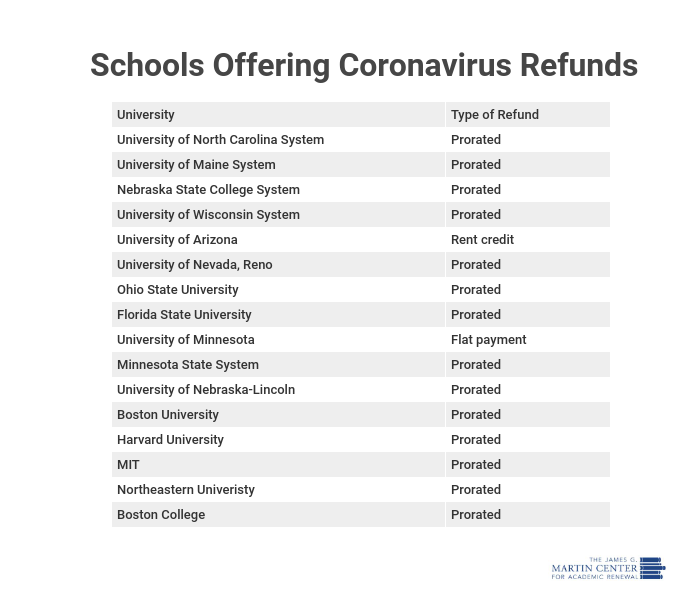Students across the country are taking their classes online and staying off campus. The coronavirus has interrupted higher ed for millions of students, faculty, and administrators alike. But a growing divide between students and university leaders has been whether students will get refunds and how much they should get back. Not all refunds are created equal.
Some statewide systems have been proactive. The University of North Carolina system has committed itself to give prorated refunds for housing and dining services. The University of Maine system has done the same, as has the Nebraska State College System. In other states, individual colleges have made the decision. Ohio State University and the University of California-San Diego have independently offered prorated refunds.
Other schools have avoided prorating any refunds. The University of Arizona only offered nominal rent credit instead of a prorated refund. The Arizona Board of Regents, which oversees the University of Arizona, Arizona State University, and Northern Arizona University, is being sued in a class-action lawsuit by students who want a prorated refund. At the University of Minnesota, a flat $1,200 refund is being offered to students.
In Pennsylvania, a state lawmaker introduced a bill that requires all colleges that closed due to coronavirus to offer students a prorated refund.
Not all colleges have made an official decision on refunding students. For one thing, the priority has been to keep spring semester running by moving classes online. Deciding what to do about student refunds did not have the urgency of a crisis decision. Some colleges have also been slow to talk about refunds for another practical reason: It’s not clear that they could afford to send out refunds and stay open.
For small colleges with no existing or limited endowments, losing a large part of spring semester revenues leaves them in a precarious position. Florida State University’s refund plan could cost them $11.5 million, according to the Tallahassee Democrat. A large state university could weather the hit, but, as Education Dive noted, “refunding auxiliary fees [like student housing] could significantly cripple institutions across the sector.”
In the coming weeks, more students will find out, to their delight or frustration, whether they’ll get some form of a refund as they take their online classes. But for higher ed in general, the decision could be between alienating current students or facing harder questions about their future survival.
Anthony Hennen is managing editor of the James G. Martin Center for Academic Renewal.

